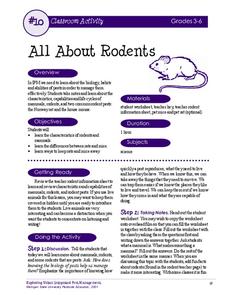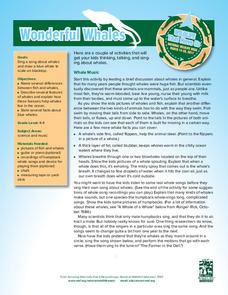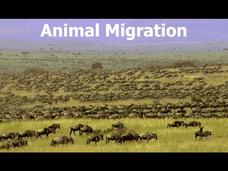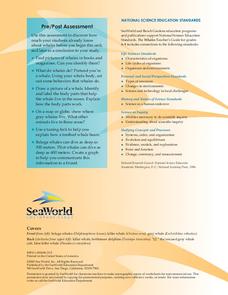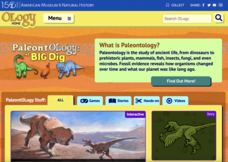Curated OER
Mammals of the Deep Blue
Third graders study ocean mammals. They explore various websites and databases to answer questions and record answers about whales and dolphins. Finally they use the information obtained to write a report about them.
Curated OER
Animals Antonyms and Synonyms Worksheet
Create a cross-curricular connection for your upper elementary language arts kids. There are 15 vocabulary words listed in the chart, and each has to do with exploring different ecosystems. For each word, the learner must find an antonym...
Curated OER
Farm Animals - Mothers and Babies - "Are You My Baby?"
Students listen to a teacher read aloud and discuss the farm animals. They participate in an role playing activity that explains how mother mammals recognize their young by their scent.
Curated OER
Animals A to Z: Manatee
In this manatee worksheet, 3rd graders will read 10 facts about a manatee to gain an understanding of the animal's characteristics. Students will locate 10 errors of punctuation, capitalization, spelling, and grammar.
Curated OER
The Five Classes of Vertebrates
What a terrific lesson! Learners discuss the animal kingdom, and classify them as vertebrates and invertebrates. They also identify them as fish, amphibians, reptiles, birds, and mammals. There is even a taxonomic breakdown of popular...
Michigan State University
All About Rodents
Get to the know the common house mouse and the Norway rat with an activity that reinforces reading comprehension skills. Scholars read a three-page document detailing key information about mammals, specifically rodents, and use their...
Curated OER
Wonderful Whales
Primary marine biologists consider the largest living animals on Earth, the whales. Introduce them to general anatomy, unique adaptations, and behaviors. Teach them to sing a song that will help them remember some of these facts....
Curated OER
Who am I?
A matching activity on some common marine mammals is here for you. In it, 12 animals such as polar bears and seals are found. Each of the animals has a colorful and accurate picture associated with it. The bonus question at the bottom...
Curated OER
Skulls Tell It All
Skulls tell it all, and with this lesson plan, you will tell it all to your class! Youngsters view animal skulls, analyzing the shape of teeth and the placement of the eye sockets. They associate these adaptations with the types of food...
Curated OER
Animals
Unifying themes in animal anatomy and physiology are displayed slide by slide. The main concepts involve the differentiation in cells and tissues, and details are given about fuel management, metabolism, and some other essential processes.
Curated OER
Animals A to Z: Orangutan
In this orangutan worksheet, 3rd graders will add pages to their "animal books." Students will read 10 facts to gain an understanding of an orangutan and its particular attributes.
Curated OER
Science Types of Animals and Their Traits
Expose your students to the wonders of scientific vocabulary with this resource. Each slide contains a word and definition related to animal types and traits, concept vocabulary covered includes, traits, animal types, threatened,...
Larson Lab
Animal Classification
How are animals classified? Scholars explore animal classification by observing non-living and living specimens. They learn how to organize animals into vertebrates and invertebrates and identify the five vertebrate groups: mammals,...
University of Washington
Animal Migration
Here is a unique resource to use with middle and high schoolers that deals with animal migration. Viewers discover the reasons for, types of, and animals that practice this behavioral adaptation. Specific animals that are introduced...
National Park Service
Hibernation-Migration-Fascination
What's the difference between hibernation and a good nap? Find out with an engaging life science activity that compares the hibernation habits of grizzly bears and marmots. After learners read an informational passage about each mammal,...
Curated OER
Who Am I?
This worksheet allows learners to see animals and reptiles, and also clearly identify them. There are bats, rats, and more. Here you will find 16 clear and colorful pictures which children must match up with their animal names. This...
Sea World
Whales
A whale of a lesson is sure to intrigue your elementary oceanographers! Learn about the mammals of the sea with a series of activities about whales, dolphins, and porpoises. Kids complete worksheets about the anatomy of a whale, create a...
Polar Trec
Nature's Density Column
Nature provides density columns in the polar regions that provides food for many animals. Young scientists build their own density columns with water in order to answer analysis questions. Through a slideshow presentation, scholars...
American Museum of Natural History
Anatomy Adventure
Sometimes science is puzzling. Using an online animation, individuals manipulate skeletal bones of an ancient species to recreate its skeleton. Learners complete the skeletal puzzle and learn about the process of paleontology in person...
Curated OER
What's A Mammal?
Students examine mammals understanding what a mammal is and reviewing the eleven mammal groups. In this science lesson, students play a game known as Mystery Mammal Game. Yet, first students research about the mammal and then give...
Curated OER
Science - How are Animals Grouped?
In these categorizing animals worksheets, students complete 20 true or false statements about animal groups. Students then classify the animals in the box into the correct column. Students write the letter of the correct answer for the...
Curated OER
Underwater Animals
Pupils investigate mammals and blubber. In this science lesson abut the sea, students perform an experiment that will help them in discovering how blubber keeps sea mammals warm.
Curated OER
How Are Animals Grouped?
In this animal grouping activity, students compare and contrast the characteristics of mammals, birds, and fish. This activity has 9 fill in the blank questions in a graphic organizer.
Curated OER
Mammals
Learners examine the characteristics of mammals through video clips, and slide shows. Lesson includes clips of fastest land animal, biggest mammal, loudest mammal and tallest animal.







